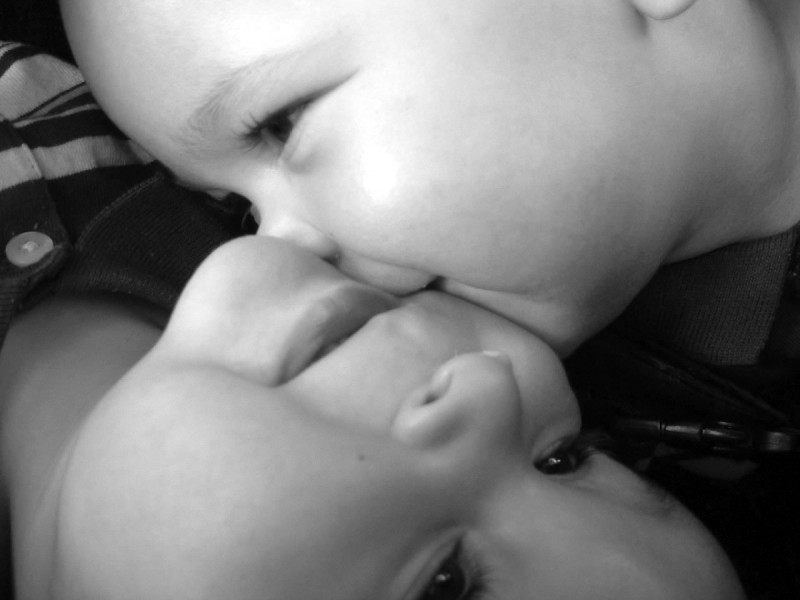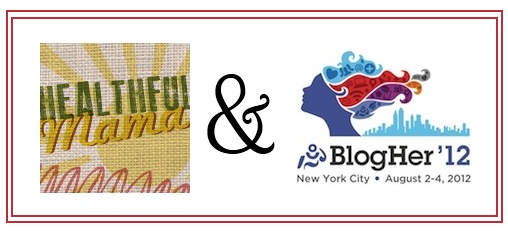Epigenetics. This funky word is why I write, why I blog, why I post the hell out of links on Facebook (which most likely drives my non-reader friends nuts), and why I am so committed to eating healthfully and living naturally. To put it simply, epigenetics is the idea that environmental factors can affect our genetic makeup, to the point where sometimes “identical” twins end up, well, not so identical. Epigenetics literally means “above the genome,” and describes a particular portion of our DNA that tells our cells how to work. (Need a refresher course on DNA? Here’s a brief video that might help.) When something interferes with the epigenome, it has, generally, negative consequences.

My first foray with epigenetics came by way of a brief online discussion in which I mentioned that I’m fearful that the toxins in our world are negatively impacting the health of future generations. My pal Jenny (The Crunchy Wife) replied, “Wait! My husband and I just attended a lecture about this! It’s called epigenetics…” And so my hunt for information began.
I started with a video I found on PBS’ science program, NOVA (Who else is a NOVA fan? Woot!) If you don’t have 14 minutes to spare for the video (though you should try to watch it–it’s great), I’ll give you a brief summary: researchers are finding that twins who were born with identical DNA are developing separate health profiles due to environmental factors. Studies done on mice reveal that these environmental factors not only affect the host, but the offspring. Mice exposed to bisphenol-A (that BPA stuff you keep hearing about in plastics) produced children who are obese and have a higher incidence of diabetes and cancer as adults. I urge you to read the Q&A with the head researcher, Dr. Randy Jirtle, which will give you a quick idea of the findings. There seems to be evidence to suggest that the level of toxins in our world could be affecting not only our children’s DNA but our grandchildren’s DNA.
Epigenetics then laid in the back of my mind as I began this blog. I didn’t seek out more info, but it’s funny how once you are aware of a word, you begin to see it everywhere! I kept catching epigenetics here and there in magazines and online reports. It’s a term that has obviously been around the science world for quite some time, but is slowly catching on in the mainstream. I went along, happily blogging about natural health and my wariness with vaccines when we received our monthly copy of National Geographic magazine.

January’s issue of Nat’l Geo featured a story about twins. I’ve always been intrigued by twins, had always hoped to have twins (Gah! Never! Knock on wood!), so I made an effort to read this feature. The article revealed more findings along the lines of the Jirtle study: certain health issues are attributed to heredity, but many aren’t. Environmental triggers are changing DNA. Again, I highly recommend reading the article–fascinating stuff!
Most recently, I came across Eco Childs Play and their article showing the possible link between epigenetics, vaccines, and autism. The author, Jennifer Lance, mainly reiterates much of what can be learned from the NOVA video, but throws in the added question about vaccines. She also relays some useful resources on epigenetics, for further reading. Find the article HERE.
What this all boils down to is that science is proving that what we eat, what we inhale, what we inject into our bodies, and what we expose ourselves to on a daily basis MATTERS. This is an excellent rebuttal for those who doff a natural lifestyle, or organic eating, or natural health because it “hasn’t been proven” to be better. What we’re seeing, friends, is that everything else is proven to be worse.
What say you? Do you feel the need to go back to science class with some of these ideas?
Keep up to date with natural health topics and real food recipes by subscribing to Healthful Mama!



This reminds me of a book in my “to read” stack: Deep Nutrition by Catherine Shanahan.
I will check that one out! Thanks!